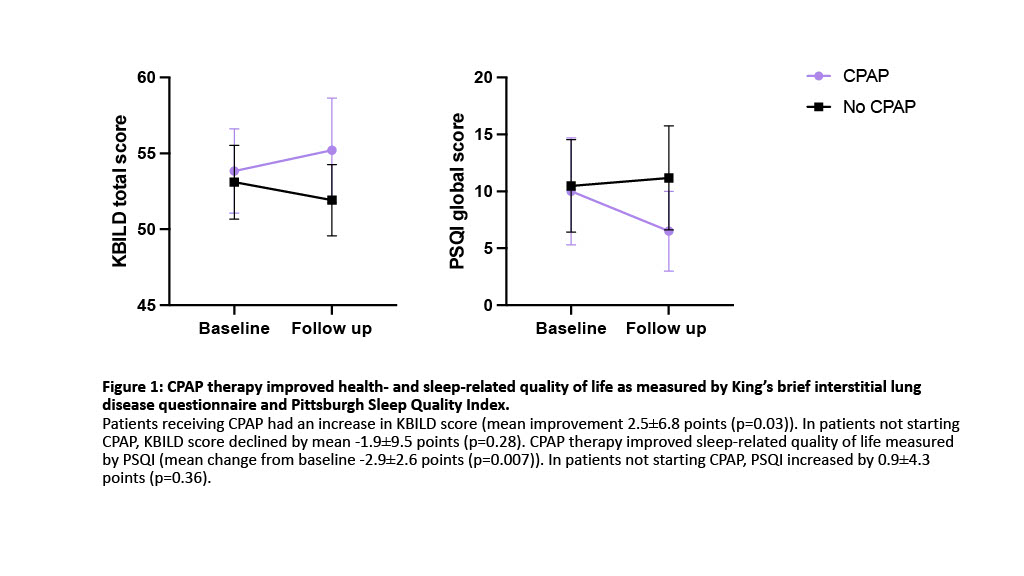Abstract
Introduction
Obstructive sleep apnoea (OSA) is common in patients with progressive fibrotic interstitial lung disease (PFILD), impacting quality of life and survival. There is a paucity of evidence to support use of continuous positive airway pressure (CPAP). We aimed to assess the effect of CPAP on quality of life and survival in these patients.
Methods
Patients with PFILD had home sleep studies. Baseline characteristics, King?s brief interstitial lung disease (KBILD) questionnaire and Pittsburgh Sleep Quality Index (PSQI) were collected. Patients with at least moderate OSA (AHI >15) were offered CPAP. Questionnaires were repeated at six months (three months post-initiation) and patients followed up for one year.
Results
We screened 124 PFILD patients. 44(43.1%) had OSA and were offered CPAP. 12/44(27.2%) commenced CPAP and had a higher BMI than those who did not (34.6±5.6 kg/m2 vs 27.1±4.2kg/m2), but there was no other difference in disease severity or sleep characteristics. Adherence was good in 7/12 patients (58.3%), and patients commenced on CPAP had significant improvement in KBILD (p=0.003) and PSQI (p=0.007) (Figure 1). This was not seen in untreated patients. Hazard ratio for death was 0.33 (95% CI = 0.04-2.70) in the group receiving CPAP vs the group who did not.
Discussion
In patients with PFILD and OSA, CPAP therapy improved quality of life and survival, and trials are required.
